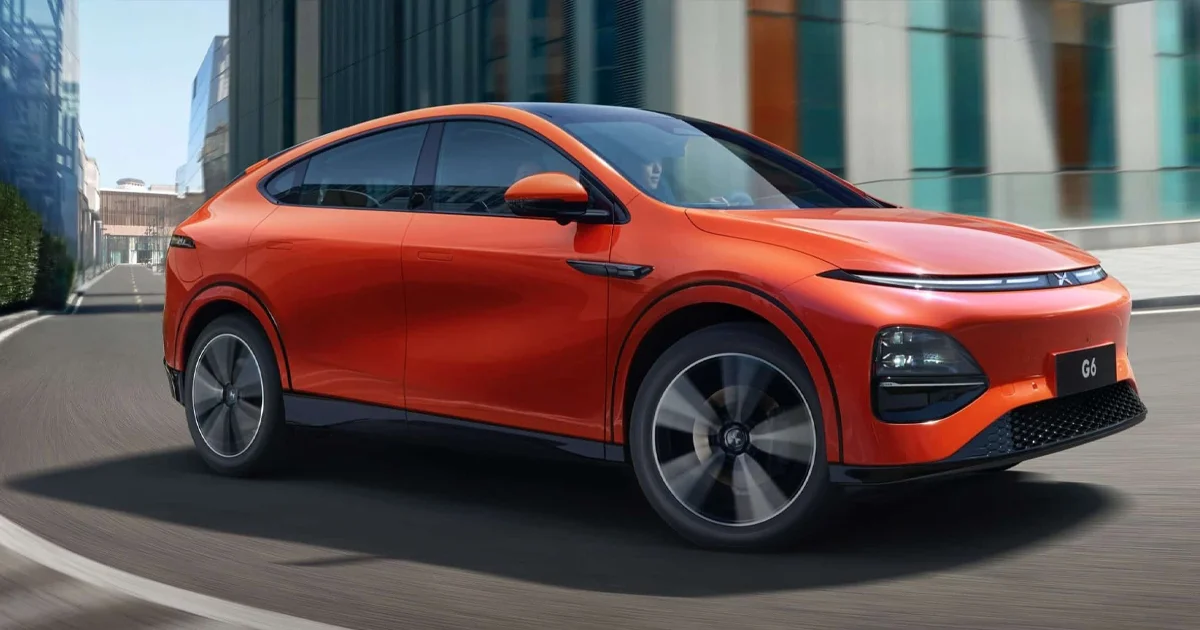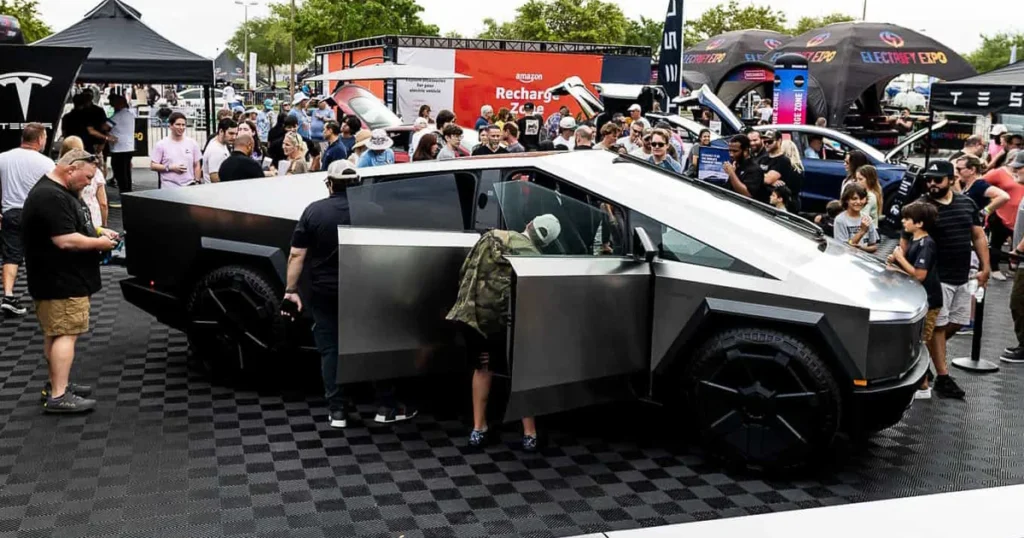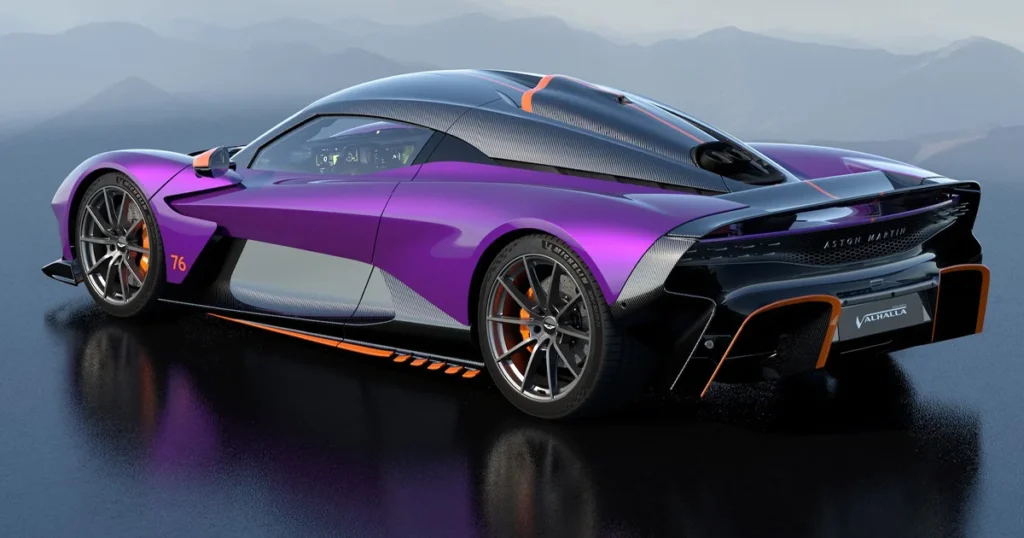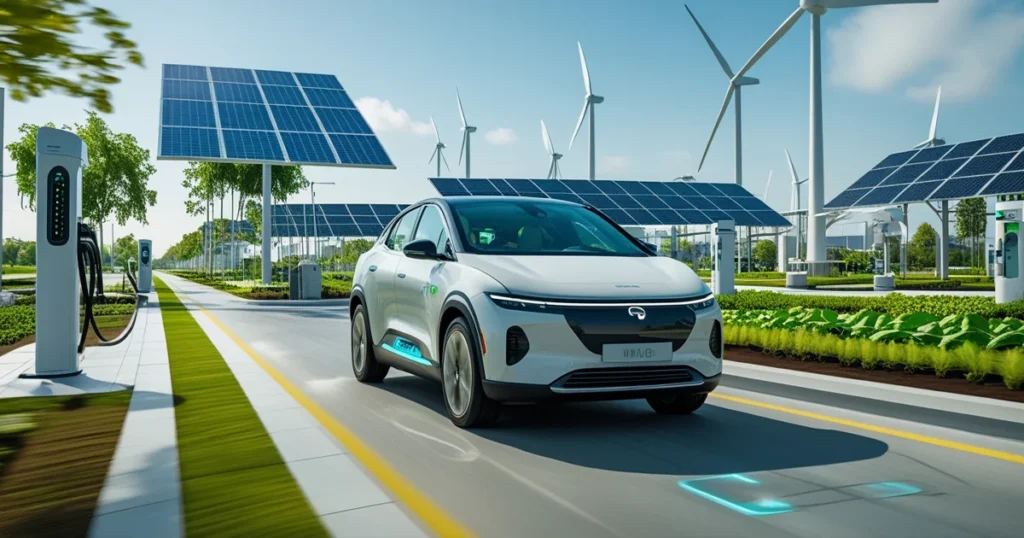Affordable EVs: The Rise of ‘Model Y Killers’ from Chinese Automakers
The electric vehicle (EV) market is undergoing a significant transformation. With increasing environmental awareness and rising fuel costs, electric cars have become more than just an eco-friendly alternative to gasoline-powered vehicles they have become a mainstream choice for consumers worldwide. While Tesla has long dominated the EV landscape, a new wave of competition is rapidly emerging from Chinese automakers. These companies are introducing affordable, high-tech EVs that are challenging Tesla’s crown, particularly its popular Model Y. These emerging competitors are increasingly being referred to as ‘Tesla Model Y challengers.
In this article, we will explore how Chinese automakers like BYD, XPeng, Nio, and Zeekr are stepping up to challenge Tesla’s dominance. We’ll dive into the technological advancements they bring to the table, their competitive pricing strategies, and what this means for the future of the EV market.
The Emergence of Chinese EV Competitors
The rise of Chinese automakers in the electric vehicle market is not a sudden phenomenon. Over the past decade, China has made significant strides in EV production and development. Today, China is the world’s largest EV market and a leader in EV innovation. Chinese manufacturers have quickly gained traction, offering vehicles that rival and in some cases surpass Tesla’s offerings in key areas such as price, range, and technology.
BYD: A Global Leader in Electric Vehicles
BYD (Build Your Dreams) is one of the most significant Chinese players in the global EV market. As of 2023, BYD became the world’s largest seller of electric vehicles, surpassing even Tesla in total sales. The company’s success is attributed to its ability to provide high-quality vehicles at affordable prices.
Models like the BYD Dolphin and BYD Seal have garnered attention for their attractive pricing, impressive battery technology, and good range. For example, the Dolphin is an affordable, compact EV that offers a range of up to 400 kilometers on one full charge. Meanwhile, the Seal is a sleek sedan that competes directly with Tesla’s Model 3 in terms of performance, offering a range of up to 600 km on a full charge.
What sets BYD apart from Tesla is its ability to keep prices significantly lower while still offering comparable or superior features. The affordability of BYD’s EVs makes them accessible to a broader audience, especially in markets like Europe and Asia. BYD Official Website.
XPeng: The Tesla Challenger
XPeng Motors, another prominent Chinese EV maker, has gained significant attention in the global automotive market. The company is known for its futuristic designs and advanced autonomous driving capabilities. One of XPeng’s most popular models, the XPeng P7, is a luxury sedan that competes with Tesla’s Model S, while the XPeng G3 is a compact SUV competing with the Model Y.
XPeng has made headlines with its XPeng Mona M03, a compact sedan that is priced around $16,500 significantly cheaper than Tesla’s Model 3. The Mona M03 has been a hit in China and is expected to challenge Tesla’s dominance in Europe and beyond, especially as global consumers look for more affordable options without compromising on technology. XPeng is also investing heavily in autonomous driving technology, with features like XPilot, which brings Tesla’s Autopilot-style self-driving features to their vehicles. XPeng Official Website.
Nio: The Premium EV Rival
Nio is another top Chinese automaker making waves in the EV world. The company is often considered one of the closest competitors to Tesla, especially in terms of technology and innovation. Nio’s ES6 and ES8 SUVs have been hailed for their premium features, such as an advanced battery swap system, cutting-edge AI-powered infotainment systems, and autonomous driving features.
One of Nio’s standout offerings is its Nio Onvo L60, a mid-size electric SUV designed to compete directly with Tesla’s Model Y. This model incorporates long-range battery technology, with some variants offering more than 600 km of range. It also boasts an impressive suite of advanced features such as Nio’s NOMI AI system, which enables in-car voice control, a feature that rivals Tesla’s own voice assistant system. Nio’s strategy focuses on providing premium EVs at competitive prices, aiming to carve out a niche in the high-end EV market. Nio Official Website.
Zeekr: The New Kid on the Block
Zeekr, a subsidiary of Chinese auto giant Geely, is positioning itself as a strong competitor in the premium EV market. The Zeekr 7X is a new electric SUV that boasts a fast-charging capability of up to 400 km in just 20 minutes. This places Zeekr in direct competition with Tesla’s Supercharger network, offering consumers a faster and more convenient way to charge their EVs.
Zeekr’s focus on fast charging and premium technology makes it a formidable competitor to Tesla. The Zeekr 7X also comes equipped with cutting-edge features like an advanced autonomous driving system and high-end infotainment systems. As the company’s first foray into the international market, Zeekr is setting its sights on Europe, where EV adoption is rapidly increasing. Zeekr Official Website.
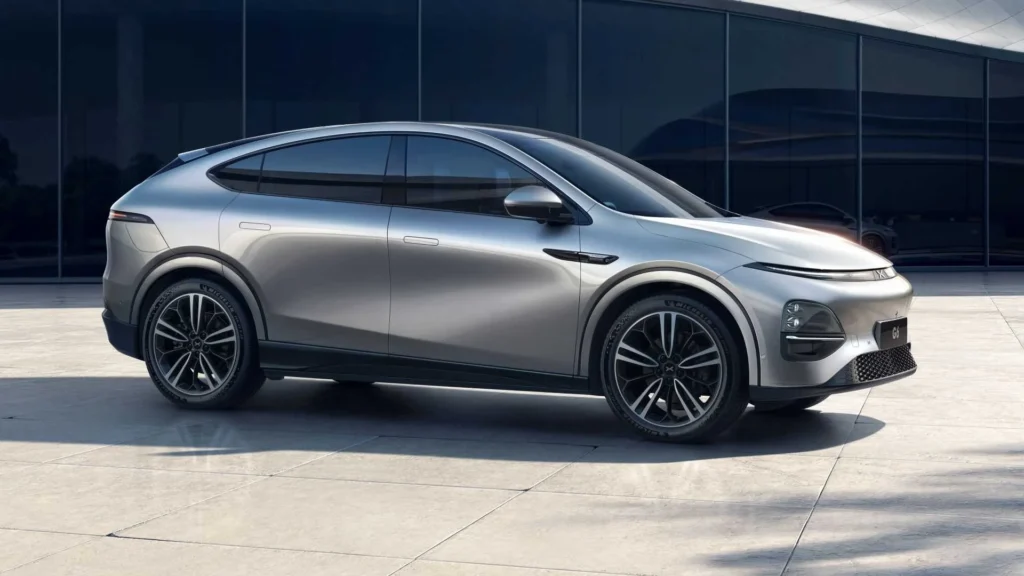
Technological Advancements and Competitive Pricing
One of the primary reasons Chinese automakers are emerging as serious competitors to Tesla is their focus on advanced technology. Chinese EV manufacturers are not just competing on price; they are also investing heavily in battery technology, autonomous driving features, and infotainment systems to offer customers more value.
Battery Technology
Battery technology is one of the most critical aspects of electric vehicles, and Chinese automakers have made significant progress in this area. Companies like BYD and Nio have developed batteries that offer longer ranges and faster charging times than Tesla’s current offerings. For example, Nio’s battery swap technology allows drivers to replace depleted batteries in a matter of minutes, offering a convenient alternative to traditional charging. This technology could revolutionize the EV market and give Chinese automakers a leg up in terms of convenience and customer experience.
Autonomous Driving and Infotainment
Chinese automakers are also making strides in autonomous driving and infotainment systems. XPeng’s XPilot and Nio’s NOMI AI are sophisticated systems that allow for hands-free driving, enhanced navigation, and voice control. These systems are quickly catching up to Tesla’s Autopilot in terms of functionality and user experience. As these technologies improve, they will become a key differentiator for Chinese EVs in the competitive global market.
The Impact on Tesla and the EV Market
The emergence of these “Model Y killers” is already having an impact on Tesla’s market share. While Tesla is still the dominant player in the EV market, its position is becoming increasingly challenged by Chinese automakers. Tesla’s prices remain high, and as Chinese EVs offer more affordable alternatives, consumers are beginning to take notice.
At the same time, the competition is pushing Tesla to innovate faster and improve its offerings. As the global EV market becomes more crowded, all players whether it’s Tesla, BYD, XPeng, or Nio will need to continually innovate to stay relevant. The result is a race to provide better, more affordable EVs for consumers, which can only benefit the market as a whole.
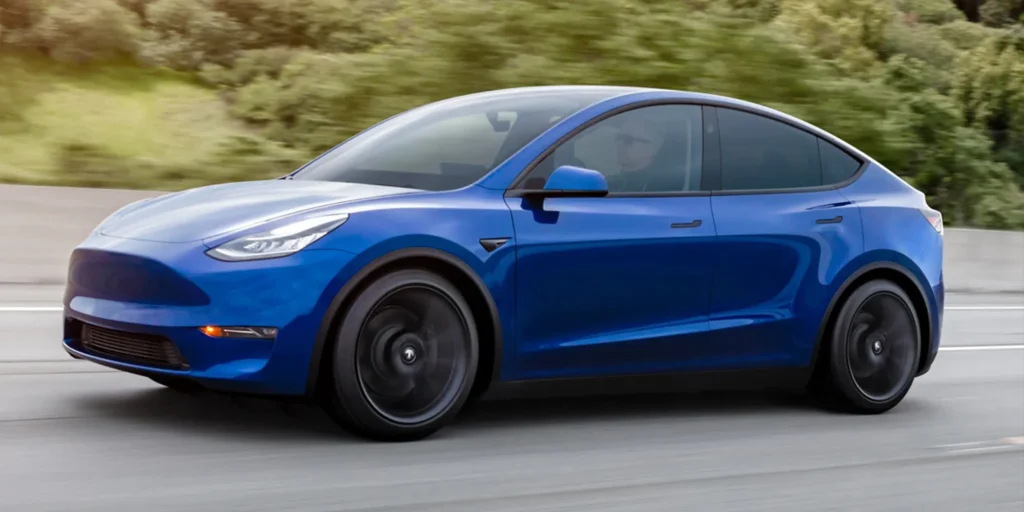
Challenges Faced by Chinese Automakers
While the rise of Chinese EVs is exciting, these manufacturers face several challenges. Regulatory hurdles, such as tariffs and safety standards, are a significant concern in markets like the United States and Europe. Additionally, while Chinese automakers have made significant strides in technology, they still face stiff competition from established global brands, which may make international expansion more difficult.
Nevertheless, Chinese automakers are gaining ground. Their ability to offer high-quality EVs at affordable prices has made them appealing to a broader range of consumers. As these companies expand internationally and overcome regulatory hurdles, they are poised to play a pivotal role in the future of the global automotive industry.
Conclusion
The rise of affordable EVs from Chinese automakers is a game-changer in the electric vehicle market. Companies like BYD, XPeng, Nio, and Zeekr are bringing high-quality, technologically advanced electric vehicles to market at competitive prices, challenging Tesla’s dominance. As these companies continue to innovate and expand, they will play a key role in shaping the future of the EV industry.
With more affordable and feature-rich options available to consumers, the global adoption of electric vehicles is expected to accelerate. The competition among automakers will foster greater innovation and, ultimately, benefit consumers by providing more choices, better technology, and lower prices.
As we look to the future of the automotive industry, the rise of Chinese “Model Y killers” marks the beginning of a new era in the EV market. Visit www.mavlluxury.com for more insights and updates on the latest in automotive technology and trends.

